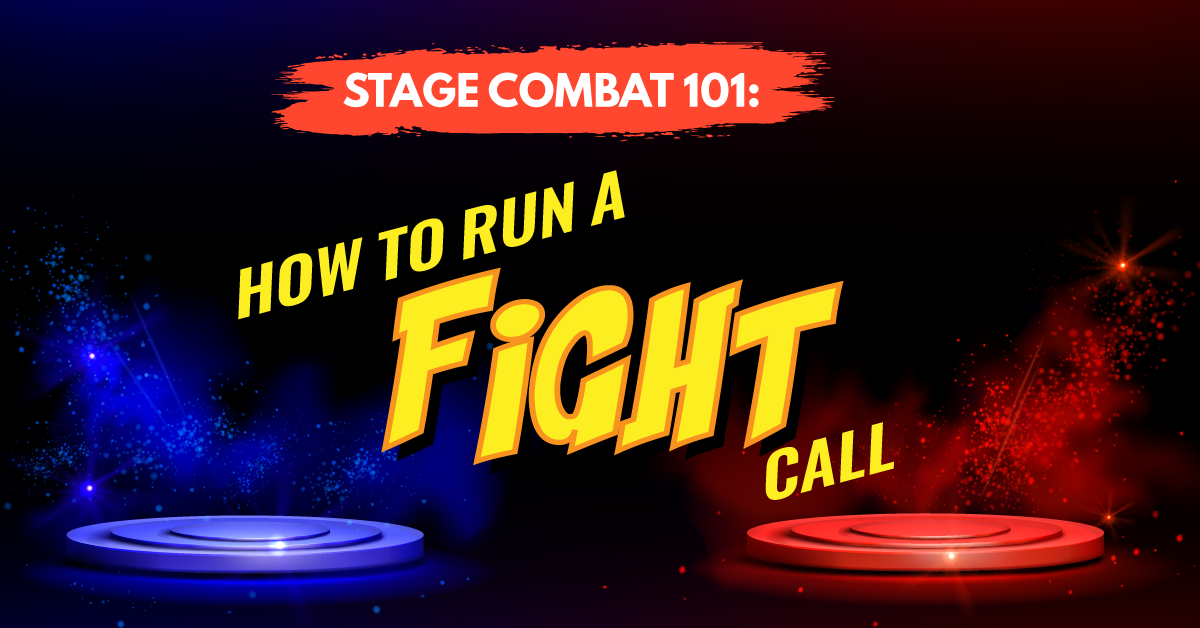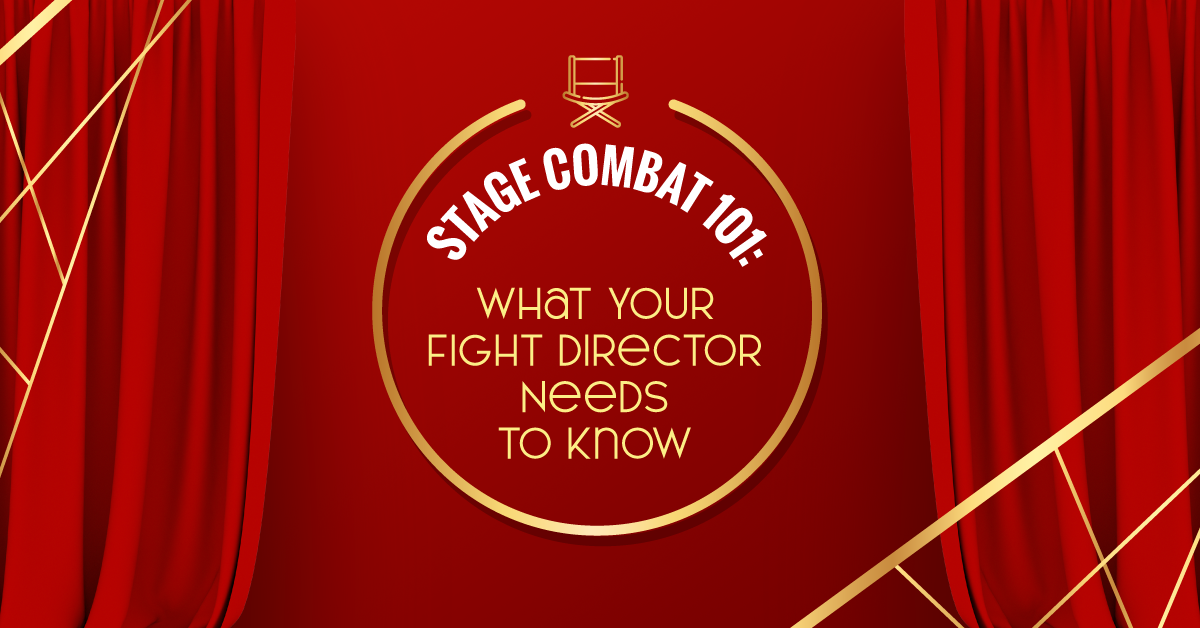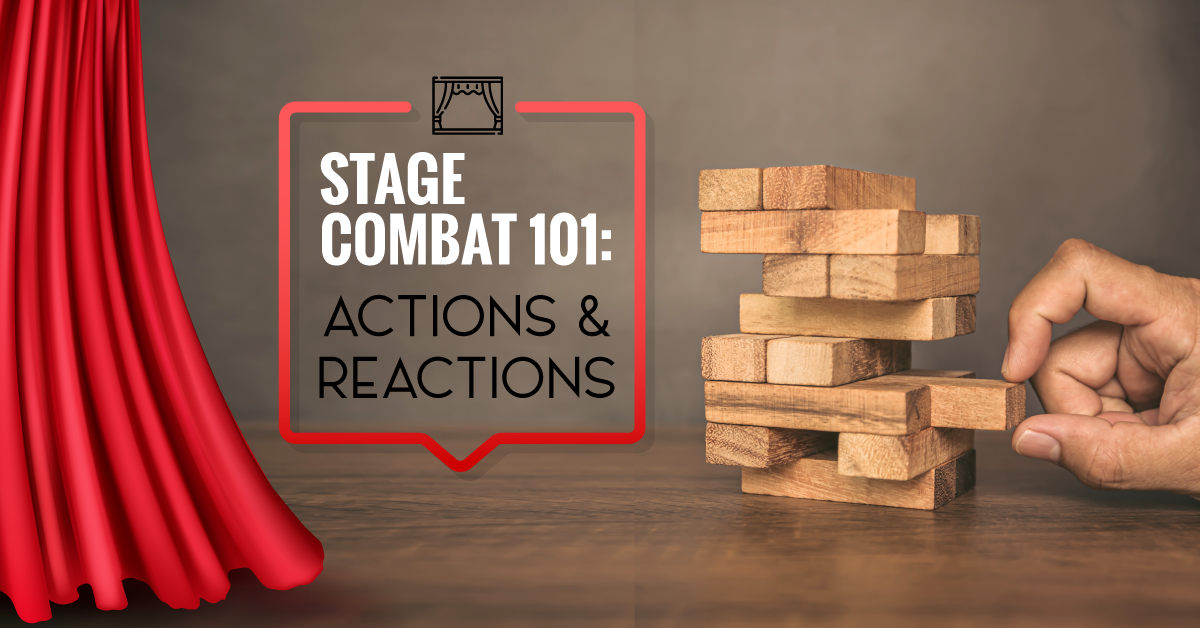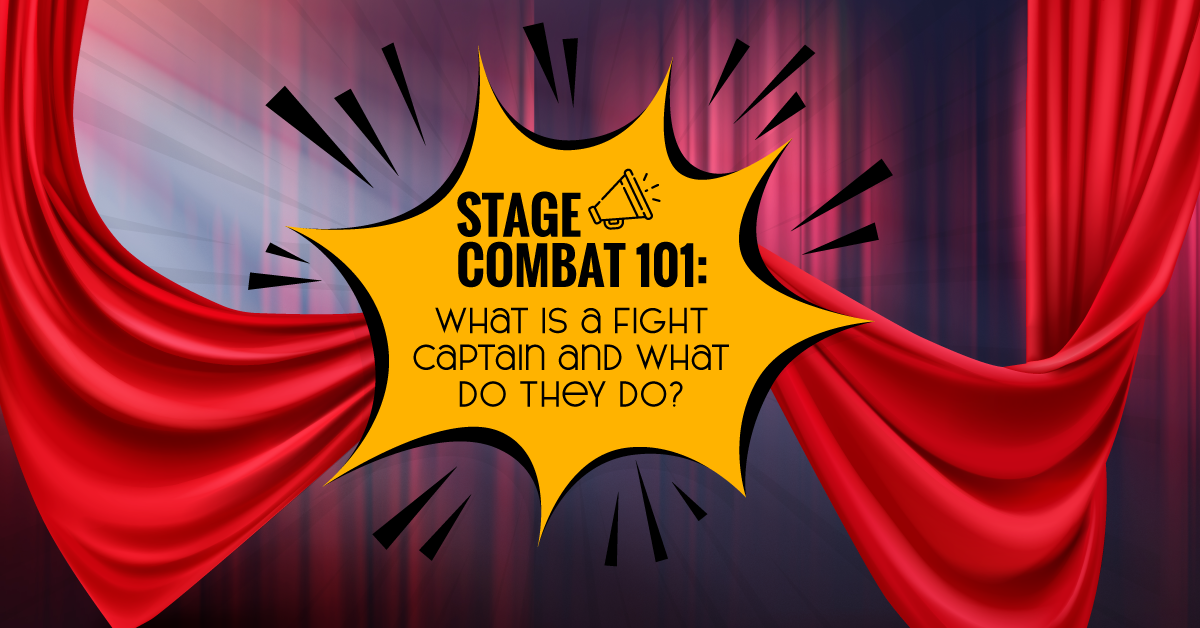Agatha Rex by Lindsay Price is a bold high school take on Antigone - packed with heart, conflict, and a powerhouse ensemble. One girl. One stand. One huge risk. *NEW COMPETITION VERSION AVAILABLE!*
Stage Combat 101: How to Run a Fight Call
When you’re producing a show that has stage combat in it — whether it’s a show with multiple fights, skirmishes, and battles or a show with a single punch — it is imperative to run a fight call prior to every performance. Students must never perform any sort of stage combat for the first time that day onstage during a performance — it’s simply not safe. This is a hard and fast rule no matter if you’re a student performer or a professional performer.
A fight call is where all the students involved in any sort of staged violence assemble prior to showtime and rehearse all the fights in the show twice — once at half speed and once at performance speed. This is so students can re-activate their muscle memory and get themselves into show mode before the curtain rises. Below are some tips for running an efficient and safe fight call.
Pre-Showtime Tasks
Explain to the cast what a fight call is. Remember, fight call is when all fights in the show are rehearsed twice — once at half speed and once at performance speed. (In stage combat, performance speed is no faster than 75% of a “real” fight.) Attendance at fight call by all students doing stage combat is mandatory!
Plan out the order of fights for fight call in advance. It doesn't have to be in chronological order. Put the fights with the most students first, and then dismiss students as needed, working down to smaller fights (such as two-handers). Of course there will be exceptions to this rule, such as running fights with the same furniture in place back to back, but you will figure out what works best for your show. You may find during fight call that it makes more sense to rehearse the fights in a different order. That’s fine — make the change that makes fight call run most efficiently.
Fighters do not leave the stage until the fight captain officially dismisses them.
If there are many small fights with only a few people, it may be possible to run two fights at the same time on different parts of the stage. This can save some time, but it will depend on where the fights are located on the stage and if they require access to the same furniture/props. If you do decide to rehearse two fights simultaneously, you will need a second fight captain or an assistant stage manager to assist with observing the fights. Having a second fight captain or ASM is also necessary if the fight captain is IN the fights and cannot observe them.
Type up the fight call list and post it backstage (and in the dressing rooms if you want to be super efficient), and ensure the fight captain(s) and stage management team members have a copy. You may wish to keep a list of weapons with the fight call list as well. See below for some sample fight call lists.
Practice the fight call in rehearsal prior to showtime. Be sure to time it with a stopwatch so you have a baseline of how long it will take. Know that the first fight call will likely be a mess, but subsequent fight calls will run more smoothly.
Showtime Tasks
The fight captain will ensure that the stage is swept/mopped/free of debris. They don’t have to do it themselves, but they need to ensure it’s done prior to fight call.
When the fight captain is running the fight call, it is helpful to include “onstage” and “on deck” commands. “Onstage” means the fight that is currently rehearsing, and “on deck” refers to the fight that's coming up next in the fight call order. The fighters who are “on deck” should be ready nearby with their weapons in hand to jump onstage when their fight is called to rehearse. This way less time is wasted.
Students must rehearse with all necessary equipment during fight call. All weapons and any necessary special effects, costumes, props, furniture and/or set pieces must be in place. Have students get everything ready prior to or during “on deck” commands. As well, additional crew members might need to be present for fight call. For my production of The Lightning Thief: The Percy Jackson Musical, one of the fights was timed to music, so we needed to have our musical director present for fight call to play the accompaniment. Another fight in that show required an ASM offstage to operate a special effect, so they were also needed during fight call.
The fight captain needs to make sure that all the weapons are in good working order, and be informed if any problems arise that could affect the stage combat. If any problems arise during fight call that cannot be solved by the fight captain, stage management, or the director, the fight director needs to be contacted right away.
Fight calls must be run efficiently. Do not rush it but also don't dilly-dally. Remember that students will need time for ALL their pre-show tasks (costumes, makeup/hair, vocal and physical warm-ups, checking props, microphone sound checks, etc.) and you don't want call time to be ridiculously early, especially during double show days. And be aware: fight calls occur before every performance, even on double show days.
When fight call is complete, the fight captain will make an announcement, so whatever tasks need to be completed next (sound checks, warm-ups, etc.) can be started efficiently. Communication is key!
Kerry Hishon is a director, actor, writer and stage combatant from London, Ontario, Canada. She blogs at www.kerryhishon.com.



